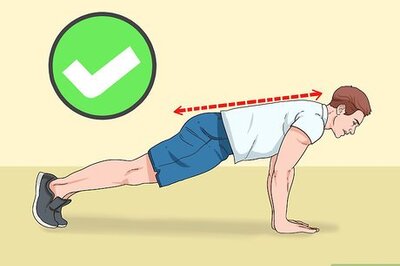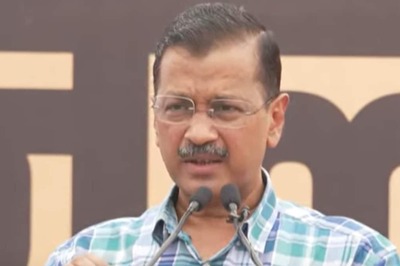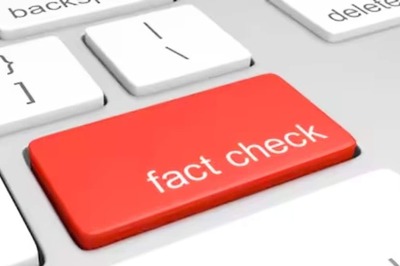
views
London: Iran warned of a tough crackdown on Sunday against demonstrators posing one of the boldest challenges to its clerical leaders since nationwide unrest shook the Islamist theocracy in 2009.
How serious are the protests?
Political protests are rare in Iran, where security services are pervasive. And yet tens of thousands of people have protested across the country since Thursday. The demonstrations are the biggest since unrest in 2009 that followed the disputed re-election of then-President Mahmoud Ahmadinejad.
They began in Iran's second city of Mashhad in the northeast on Thursday and spread to Tehran and other urban centres. Iranians vented their anger over a sharp increase in prices of basic items like eggs, and a government proposal to increase fuel prices in next year's budget.
Some protesters also vented their rage over high unemployment and savings that were lost after investments in unlicensed credit and financial institutions turned sour.
The demonstrations, initially focused on economic hardships and alleged corruption, turned into political rallies. Anger was soon directed at the clerical leadership in power since the 1979 revolution, including Supreme Leader Ayatollah Ali Khamenei, the ultimate authority in Iran's cumbersome system of dual clerical and republican rule.
How will the government respond?
The government's main challenge is to find a way to suppress the uprising without provoking more anger.
So far, while the authorities have threatened to take strong measures, in practice they have largely been restrained. Although two protesters were killed and hundreds arrested, many believe the police have shown some self-control throughout most of the demonstrations.
Iran’s National Security Council held urgent meetings and so far has decided to block social media and messaging apps to restrict the flow of information and calls for demonstrations.
The state has a powerful security apparatus it can call upon. But so far it has refrained from dispatching the elite Revolutionary Guards, the Basij militia, and plain-clothed security forces who crushed the 2009 uprising and killed dozens of protesters.
In the meantime, the government backed down on plans to raise fuel prices and promised to increase cash handouts to the poor and create more jobs in coming years.
What are the main demands of protesters?
Iranians across the country want higher wages and an end to alleged graft. Many also question the wisdom of Iran's foreign policy in the Middle East, where it has intervened in Syria and Iraq in a battle for influence with rival Saudi Arabia.
The country's financial support for Palestinians and the Lebanese Shi'ite group Hezbollah also angered Iranians, who want their government to focus on domestic economic problems instead.
The wide spectrum of slogans showed that the wave of demonstrations cover a range of social classes who have different demands.
Unlike the unrest in 2009, the latest protests appear to be more spontaneous without a clear leader. This may be a more dangerous scenario for authorities, because it means they cannot round up the figureheads, a solution that was employed in 2009.
Some demonstrators even shouted “Reza Shah, bless your soul”, a reference to the king who ruled Iran from 1925 to 1941, and his Pahlavi dynasty was overthrown by Ayatollah Ruhollah Khomeini, the Islamic Republic's first leader.
Has Iran had similar uprisings?
In the last decade, Iran has experienced small-scale demonstrations against economic hardship or local environmental crises, and one nationwide political uprising in 2009 against alleged election fraud.
But a widespread uprising against major political and economic issues would be worrying for the Islamic Republic and far more difficult to contain.
Iran's Supreme Leader managed to control the 2009 uprising, which coincided with Arab revolts in the region, after putting the opposition leaders under house arrest, but the new wave of demonstrations in Iran does not seem orchestrated.
That could make it more of a threat than past unrest in a country that often portrays the 1979 revolution as a revolt by the poor against exploitation and oppression. Calls for an end to economic hardship are especially sensitive for that reason.
Is the economic situation worse than before?
Iranian President Hassan Rouhani championed a nuclear deal with world powers in 2015 to curb Iran's nuclear programme in return for the lifting of most international sanctions.
However, Iranians have yet to see any benefits.
Unemployment stood at 12.4 percent in this fiscal year, according to the Statistical Centre of Iran, up 1.4 points from the previous year. Youth unemployment reached 28.8 percent this year.
Economic indexes have improved under Rouhani's government and the economy is no longer in dire straits.
Inflation dropped single digits for the first time after about a quarter century in June 2016. Gross domestic product growth soared to 12.5 percent in the year through last March 20, although almost entirely due to a leap in oil exports.
However, growth has been too slow for an overwhelmingly youthful population, far more interested in jobs and change than in the Islamist idealism and anti-Shah republicanism of the 1979 revolution that the old guard clings to.
Iran's recovery has been slowed by tensions with the United States. President Donald Trump has raised the possibility that sanctions could be reimposed or new ones introduced.
How has the West reacted?
Trump, who has detailed a more aggressive approach to Tehran over its nuclear program, tweeted that Iranians "are finally getting wise as to how their money and wealth is being stolen and squandered on terrorism," and "will not take it any longer."
Canada said it was encouraged by the demonstrations. British foreign minister Boris Johnson said on his Twitter page that it was "vital that citizens should have the right to demonstrate peacefully."




















Comments
0 comment